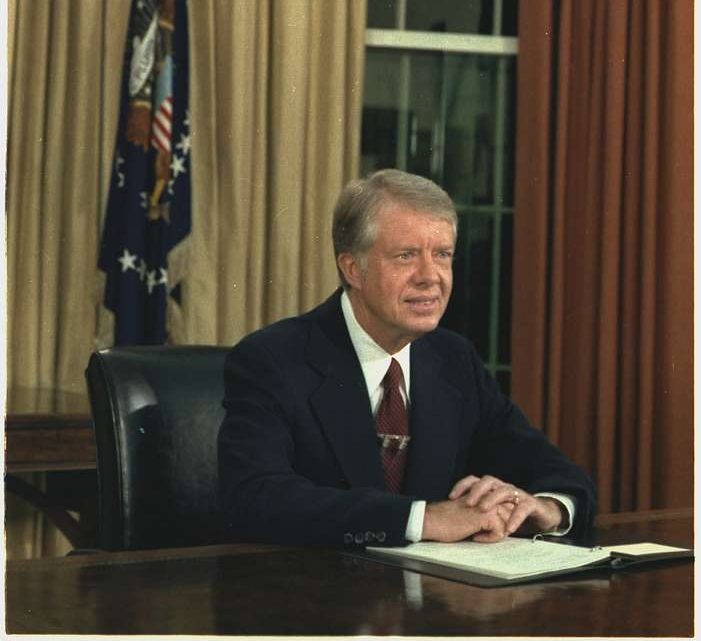Former President Jimmy Carter recently turned 100. Carter faced significant challenges during his time in office — such as the Iran hostage crisis and economic recession — but his legacy is defined more by his moral compass than political victories. His approach to governance perfectly aligns with Tulane University’s motto, “not for oneself, but for one’s own,” as he repeatedly prioritized the well-being of others over personal or political gain.
One of Carter’s hallmark achievements in office was the Camp David Accords in 1978, where he successfully brokered a peace agreement between Egypt and Israel, making Egypt the first Middle Eastern state to normalize relations with Israel. While many presidents have prioritized political wins that boost their popularity at home, Carter’s focus was outward, towards promoting global peace.
Moreover, Carter redefined U.S. foreign policy with his emphasis on human rights. Carter challenged oppressive regimes, even when it was not politically convenient. His administration halted military aid to dictatorships in Latin America, such as Argentina and Chile, because of their human rights abuses.
Carter’s domestic policies also reflected this mindset. He tackled issues like poverty and environmental degradation, placing solar panels on the White House in the 1970s, long before the discussion of alternative energy sources entered the political mainstream.
In a warning that America would have been smart to heed, Carter advocated for “the power of the sun to enrich our lives as we move away from our crippling dependence on foreign oil.”
The campaign of his opponent Ronald Reagan in 1980 attempted a blatantly treasonous plot to ensure that American hostages held in Iran were kept until after the election to deny Carter a political victory. The strategy worked, and Reagan won the 1980 election decisively. We did not deserve Jimmy Carter.
After leaving office, many former presidents recede into private life, but Carter did the opposite — he became more active in public service, dedicating his post-presidency to humanitarian causes. This chapter of Carter’s life is his most profound legacy and clearest embodiment of Tulane’s motto, “not for oneself, but for one’s own.”
The organizations and initiatives he championed continue to benefit communities globally, showcasing a lifetime of service dedicated to others. In 1982, Carter and his wife Rosalynn Carter founded The Carter Center, a nonprofit organization dedicated to promoting peace, democracy and human rights, as well as fighting preventable diseases in developing nations.
The Carter Center’s initiatives span Africa, Asia and Latin America, working on critical issues such as election monitoring, mental health advocacy and disease eradication. One of the Center’s most lauded achievements has been its role in nearly eradicating Guinea worm disease, a painful and debilitating parasitic infection that primarily affected the world’s poorest populations.
Thanks to The Carter Center’s efforts, cases of Guinea worm disease have dropped from 3.5 million in the 1980s to just seven in 2024. This accomplishment is a vivid example of Carter’s lifelong dedication to improving the health and lives of those often overlooked by the rest of the world.
Beyond The Carter Center, Carter has been a longtime advocate and volunteer with Habitat for Humanity, a global nonprofit organization that builds homes for people in need. Despite being well into his 90s, Carter would be seen physically building homes, hammer in hand. This never felt to me like a gimmick or photo op, but a genuine dedication to goodwill.
By working in areas where most world leaders would not dare venture — whether in war-torn regions to help manage elections, or among the world’s poorest and sickest — Carter has consistently lived out the value of using one’s position and influence to uplift others.
Throughout his career, Carter demonstrated an unshakable commitment to honesty and moral integrity. Even before becoming president, as governor of Georgia, he was known for his progressive stance on civil rights at a time when such positions were not popular in the South.
Carter desegregated Georgia’s public schools and appointed African Americans to significant positions in state government. In 1971, he courageously placed a portrait of Martin Luther King, Jr. in the Georgia state capitol. Just three years earlier, George Wallace won Georgia’s presidential election on a segregationist platform.
Carter’s example serves as a reminder that true leadership is not about accumulating power or wealth, but about serving others with integrity. Tulane’s motto may not have been written with Carter in mind, but Carter has embodied its spirit every day of his 100 years.





Leave a Comment